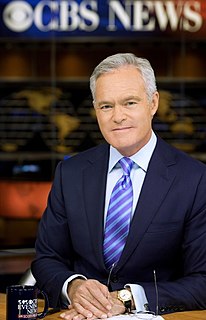A Quote by Lydia Polgreen
The New York Times I think really is the gold standard of a certain type of journalism and in some ways it's the most important type of journalism, this chronicle of the biggest and most important stories of our time covered with a level of rigor and seriousness that is really unparalleled.
Related Quotes
This is a very proud moment for journalism. I think The New York Times and The Washington Post are genuine champions in this moment. The role that they are playing in democracy is the role that you hear about journalism playing in civics classes. Other people are doing great work, but the Times and the Post have really been leaders. The public is watching, and they are hungry. They know something is wrong, there's a lot of anxiety out there. There's a real sense that the mission of journalism is very clear.
We do live in a time where there are fake web sites peddling mistruths out or sites that use hyperbole and don't put things in context. There's a range of ways that real journalism has been mashed up with things that aren't journalism... like opinion or that's sensationalistic in some ways. It is really noisy out there. You have to think of ways to cut though the noise.
If for you the most important thing is to make a lot of money, then you don't want to take a certain type of risk. If, on another hand, the most important thing to you is to make people around you have a more fulfilled life, then there is a different set of things that are important to you. Unless you really know that about yourself, you will never be able to appropriately assess risk.
Aquaman has the ability to be a huge character, and I think we really brought him to a new level in comic books, and I'm hoping that new level continues to everything that is DC Entertainment. Certainly, that's the goal. He's one of our most recognizable and most important characters, and it's going to continue to stay that way.
From the moment when a subordinate class becomes really independent and dominant, calling into being a new type of State, the need arises concretely, of building a new intellectual and moral order, i.e. a new type of society, and hence the need to elaborate the most universal concepts, the most refined and decisive ideological weapons.
Anyone who does investigative journalism is not in it for the money. Investigative journalism by nature is the most work intensive kind of journalism you can take on. That's why you see less and less investigative journalism at newspapers and magazines. No matter what you're paid for it, you put in so many man-hours it's one of the least lucrative aspects of journalism you can take on.
I consider what I do on Deadspin to be based in the foundations of journalism, yes, based on the foundations of journalism that I have been trained and that I certainly use when I write for GQ and The New York Times and so on. Certainly, I think the language can be a little looser on the web, but I am held to the same standards and accuracy everyone else is.
I personally think honestly disclosing rather than hiding one's subjective values makes for more honest and trustworthy journalism. But no journalism - from the most stylistically 'objective' to the most brazenly opinionated - has any real value unless it is grounded in facts, evidence, and verifiable data.
I personally think honestly disclosing rather than hiding ones subjective values makes for more honest and trustworthy journalism. But no journalism - from the most stylistically objective to the most brazenly opinionated - has any real value unless it is grounded in facts, evidence, and verifiable data.






























